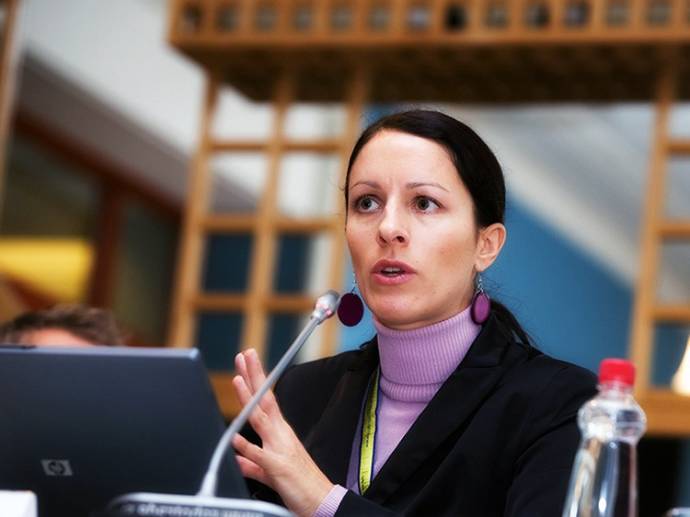Secure centres for migrants would be set up outside the EU or in the member states to process asylum claims under a deal reached after marathon talks at the summit in Brussels on Thursday and Friday.
Kogovšek Šalamon warned that it was not clear what the term controlled means. "I'm afraid it could mean detention centres, which means that the freedom of movement would be limited. The freedom of movement is a basic human right, limiting it is allowed only in specific circumstances and from that point of view these centres are very problematic," she said.
She deems opening new migrant centres inappropriate and fears they could become similar to prisons.
Instead, more administrative centres should be opened to speed up the processing of asylum requests, she proposes.
As regards the idea of platforms at which migrant ships would land, which was also floated at the summit, Kogovšek Šalamon believes this could be an "euphemism for 'hotspots'" - detention centres to the likes of those in Greece.
Since these platforms would likely be set up in poor countries, there is serious danger that the conditions there would not meet the legal standards. "They could even become a source of slavery (the example of Libya), which is prohibited," she said.
Kogovšek Šalamon is also concerned by the call at the summit that member states should cooperate in preventing secondary migrations of migrants around the EU.
She believes this means internal border controls, racial profiling and identifications of people in the street and public areas, which would force asylum seekers to hide and thus push them into isolation.
Kogovšek Šalamon proposes the EU instead use the newly arrived to compensate for its generational gap and mitigate the effects of demographic changes through strong integration policies.
A response to the agreements reached at the summit also came from a security issues expert and former boss of intelligence agency SOVA Damir Črnčec, who wrote on Facebook that "sobering has come" and that "we are moving in the right direction".
He said in his post that the summit in Brussels was all about saving German Chancellor Angela Merkel and that the issue of the controversial implementation of the Dublin Regulation had been completely ignored.







